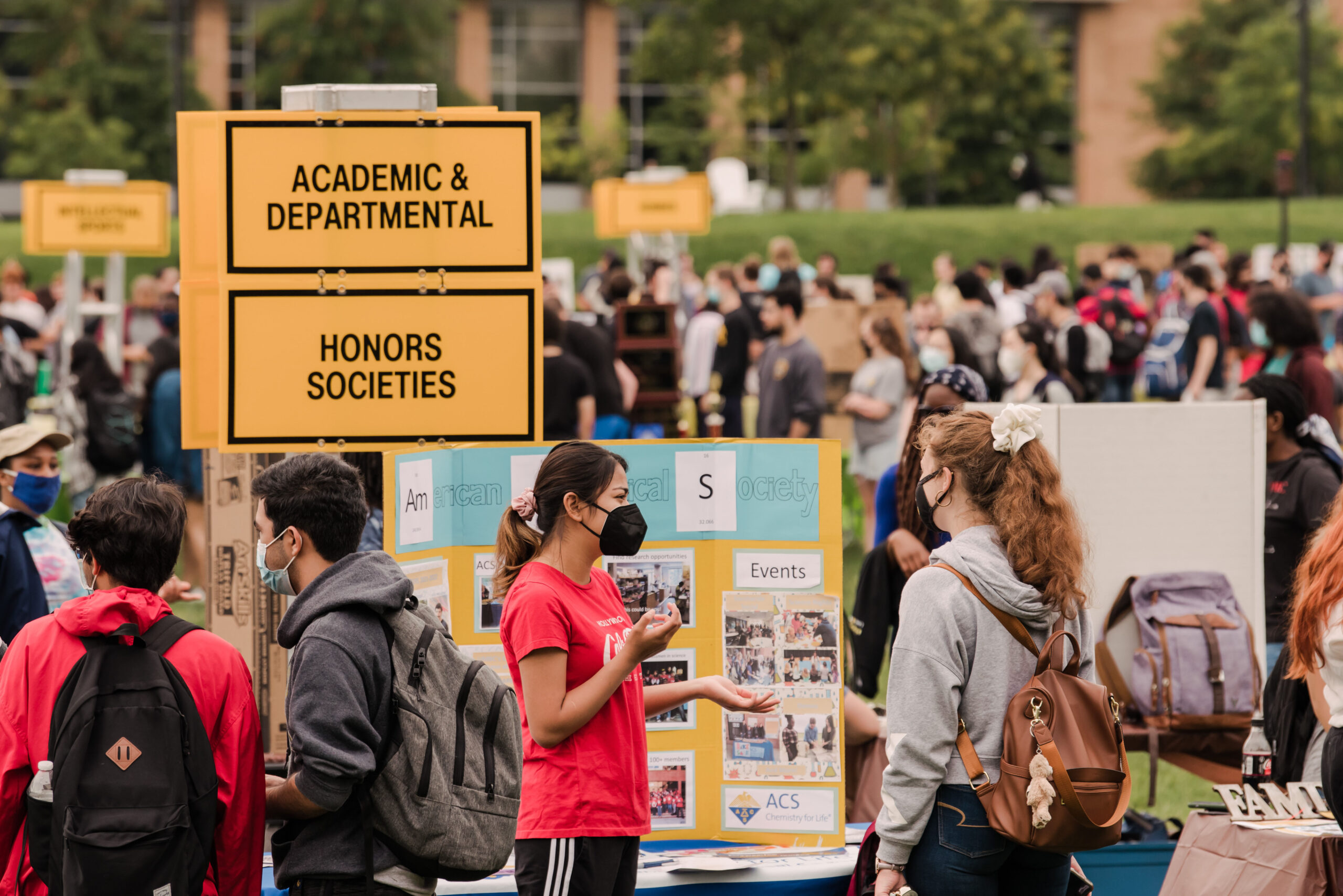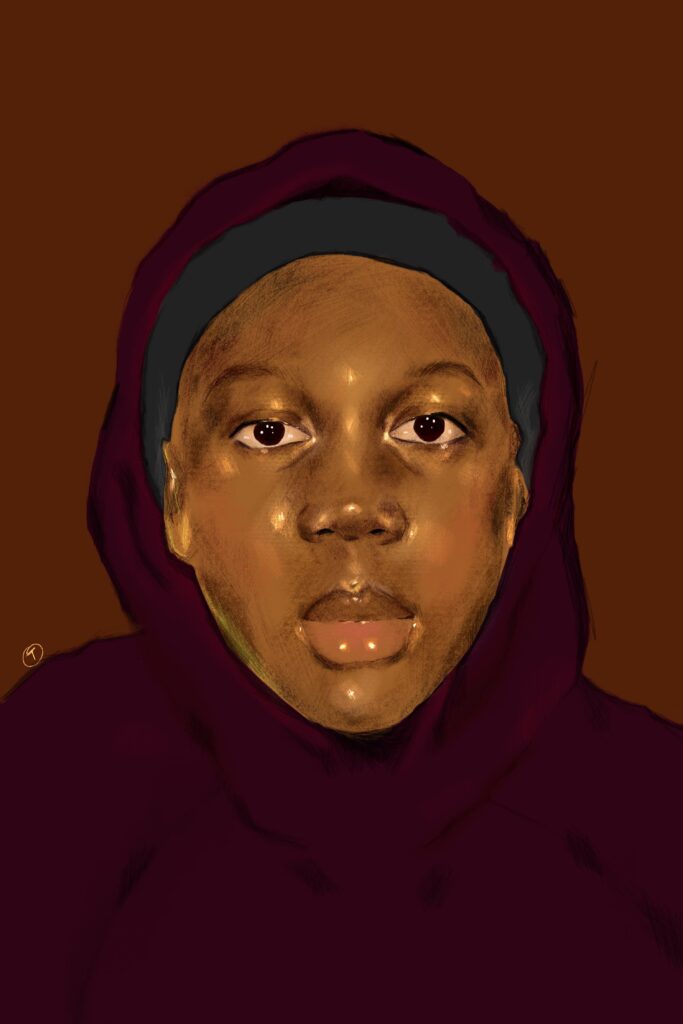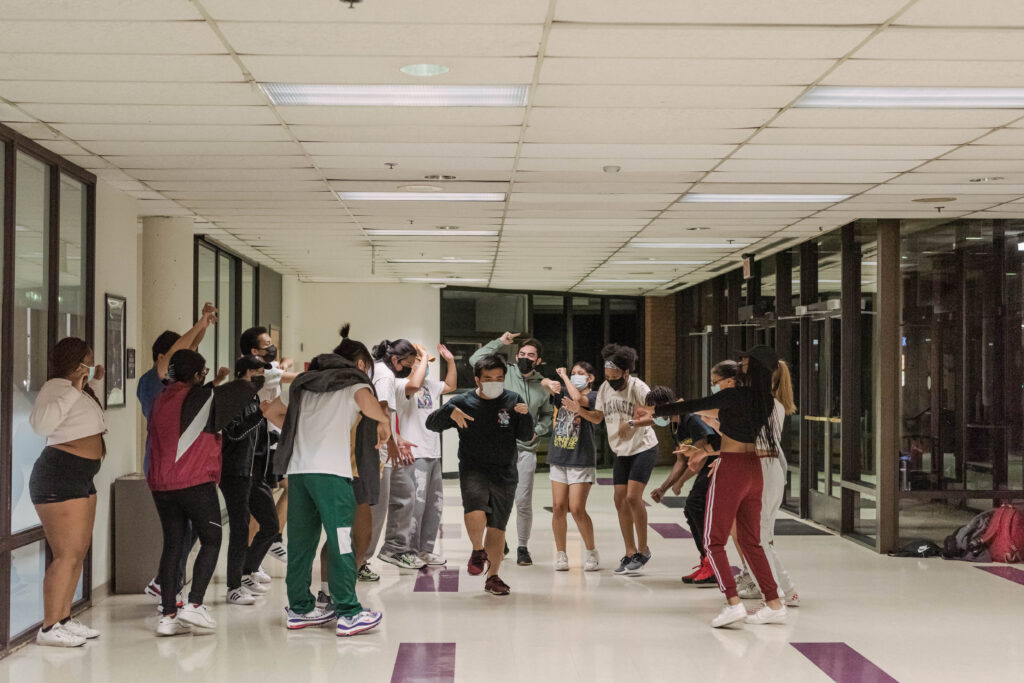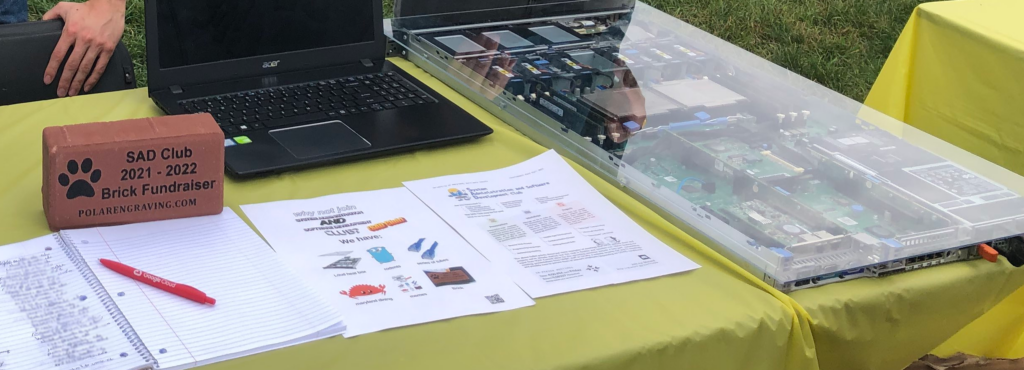President of the System Administration and Software Development Club (SAD Club) Nikola Bura ’22, computer science, and former vice president—now “keeper of the (non-alcoholic) drinks”—Henry Budris ’22, computer science, talk fondly of the quirky origins of their student org. SAD Club came into existence in 2019 with lighthearted and humorous ambitions (thus the funny titles). Over time, however, it has expanded into a meaningful place to learn about software development, finding ways to thrive even as other student orgs have had to adapt their approach to community in order to maintain membership during the switch to virtual in 2020.
The relentless positive energy from Bura and Budris certainly helped keep things going, but both always had the sense that their club was one that could work in a fully online format. “We’re computer people,” says Bura, with a chuckle.“All of the computer classes can be done online, so we were definitely in a good position to continue our organization virtually.”
Budris adds that a new goal for SAD is bringing in people who are brand new to the field of software development. “We want people to know, if you’re new to this, we can teach you cool things.”
Other student groups have found different ways to ride out the changing pandemic guidelines to keep their communities intact. It comes as no surprise that these Retriever club leaders found unique pathways to keep their clubs connected.
Preserving the essence of community
Another relatively new club, the Association of Black Artists (ABA) announced its presence for the first time in the fall of 2019.
“The idea was to have us all collaborate because the arts department here is relatively small, and then the population of Black students within each department is even smaller. So we were focused on just creating a place or a safe space where all of us can come together and share our own experiences, art, and even possibly having collaborations with different members,” says President Kayla Massey ’22, dance and information systems, an initial member of the executive board.
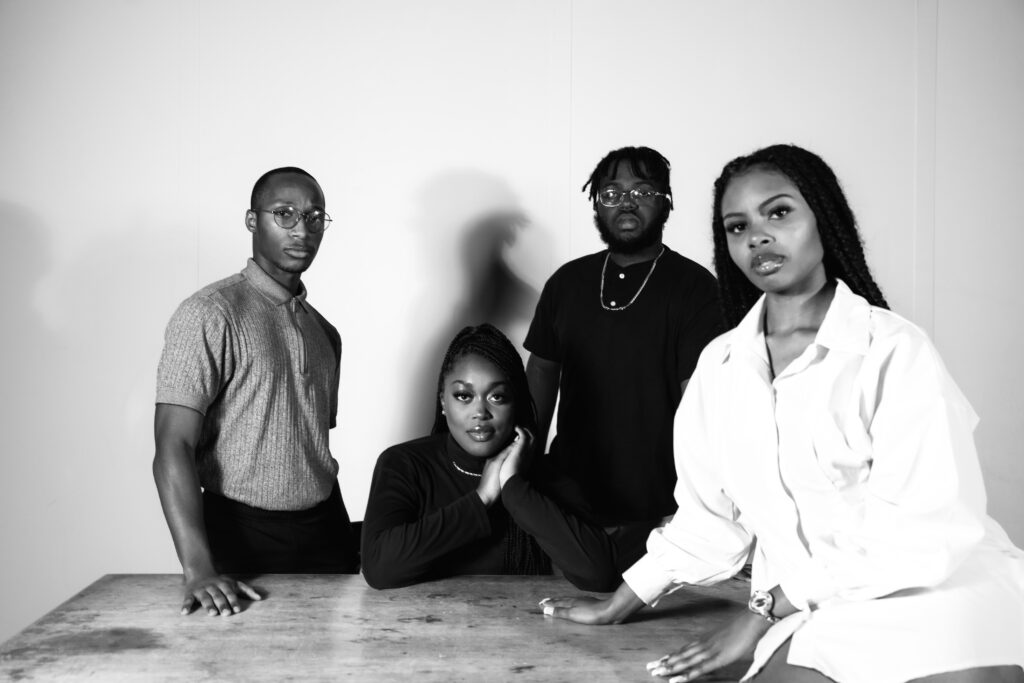
Much like SAD club, ABA didn’t have much of a history leading into the transition to the virtual world. They did, however, have two or three in person meetings before getting sent home. “It was devastating for us. We were new, fresh, and exciting,” notes Massey.
Prior to COVID-19, about 15 – 20 members met once a week in the evenings at the Performing Arts and Humanities building. “ We’d feed off each other’s energy, just enjoy being in the same room with each other,” says Massey.“ But when COVID first hit, everyone was just trying to figure out what was next. We took a hiatus for the rest of the semester, but we did continue meeting as a board just to make sure that we kept a sense of community.”
The only reality you know
Meanwhile, Vice President Tochi Nwachinemere’s ’24, biology, entire experience with the Association of Black Artists has been a virtual one.
“I don’t really know any other way. The online format we had to do during COVID, wasn’t my favorite. When you have so many classes and things you need to take care of, it’s hard to convince people to participate in something they technically don’t have to do.” Nwachinemere notes.
Massey is looking forward to the fall, when some of their meetings will resume in person—and she’s not worried about the future of ABA. “In terms of the longevity of the club, I am not worried at all, and it is because of Tochi. With everything she’s experienced within the club, the fact that she’s working with the people who started this club, and just with her personality, she’s got this, she’ll be great. She understands the mission,” says Massey.
How must the show go on?
Unlike new clubs like SAD and ABA, the dance group Major Definition is practically a campus landmark. Founded in 2005, Major Definition is well-known for their vibrant hip-hop dance performances and competitions, but how could a dance organization continue its craft online?
According to Timothy Huynh ’22, computer science, executive director since fall 2020, it was quite a process, riddled with highs and lows. “Our last practice before the shift to online was just before spring break, which initially was extended by just two weeks. It’s funny, because we were thinking, ‘These next two weeks, we’re just going to have people send in videos of themselves practicing the set. And then after those two weeks we’re going to return, and get back to practicing right away again.’ Then that fell through,” he says.
The following months continued to put Huynh and Major Definition to the test. “Typically we plan for a semester before it even starts. When we were sent home indefinitely we decided to end the season early, because we really couldn’t do anything without it being a last second solution, and I always prefer quality over a rushed solution,” says Huynh
Nevertheless, there was some joy at the end of a tough semester. “We still had our end of the semester choreo-showcase where members can show off the choreography that they worked on in a show-and-tell style and we just cheer each other on. We managed to do that virtually and it was really nice to watch all the videos together at the same time,” says Huynh.
Trial and error, in the name of success
Major Definition developed an impressive, and aesthetically pleasing online presence during the pandemic, amping up their Instagram and YouTube output with stand-out production quality.
Now that student organizations have more freedom in how they meet, Major Definition is set to return to one thing for sure. “No matter what, we’re going to be having in person practices, because at this point we have to. But for online dance classes and auditions, we are adopting a hybrid approach to maximize our accessibility to those who aren’t comfortable or are unavailable for in person meetings,” says Huynh.
The organization has plans for a big semester once the ball is rolling. “We have pre-audition workshops which are basically dance classes for anyone who’s interested in auditioning, or just interested in taking a dance class. Beyond that, throughout the semester we typically offer free public dance classes to UMBC and beyond called public classes,” Huynh says.
While there were certainly doubts about this semester’s potential at some point, Major Definition now looks poised to have a productive semester.
“We have gotten lots of interest from Involvement Fest and our recent performance at the Fall Fest Friday event. It is reassuring to see all of the people excited about our group.”
A new trajectory for SAD
Despite the group’s growing success, Bura and Budris’s tenure in SAD started auspiciously. “When this club was handed over to Henry and me in spring 2020, I got the sense that it was a bit of a joke, in the sense of ‘hey you know what’d be funny? Let’s start a sysadmin club with a bunch of meme roles that we can assign our officers to,” says Bura.
“We kind of ran with the meme aspect of it,” says Budris, “but now it’s actually turned into an official club. We’re trying to keep that sense of ‘this isn’t a super serious club,’ but we do meaningful things.”
SAD, like other clubs, relies on the tenacity of its members to stay relevant and spread the word about their activities. “After virtual Involvement Fest we had one new person join us, and they brought a bunch of their friends,” says Budris. With the influx of new members, SAD club has developed new objectives to open up what comes next.
“I think the main goal we’d like to implement is bringing in people who are brand new to the field instead of making this a club that’s ‘only for experts,’” clarifies Budris. “We want people to know, if you’re new, we can teach you cool things.”
After having their first meeting on September 10, offered both in-person and virtually, to maximize accessibility, Bura sums up the situation best. “I’m really proud that we have our club, we had to do a lot to get where we are right now.”
******
Header image: Student groups adjust to an outdoor Involvement Fest in 2021. Photo by Marlayna Demond ’11.

